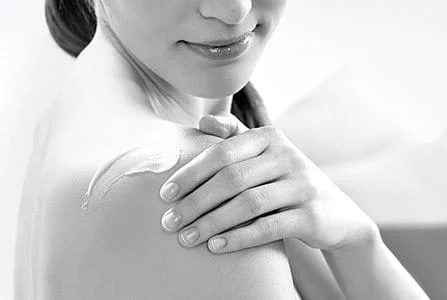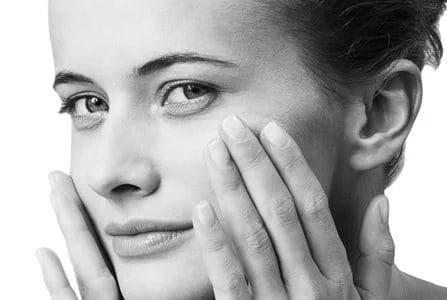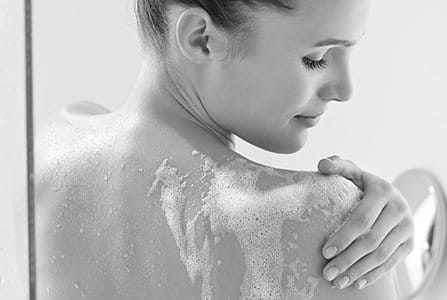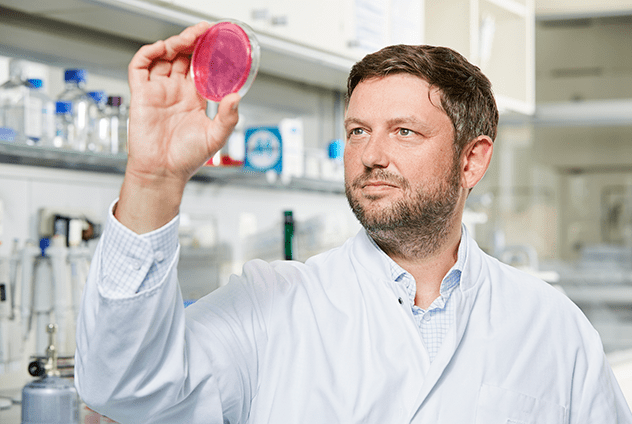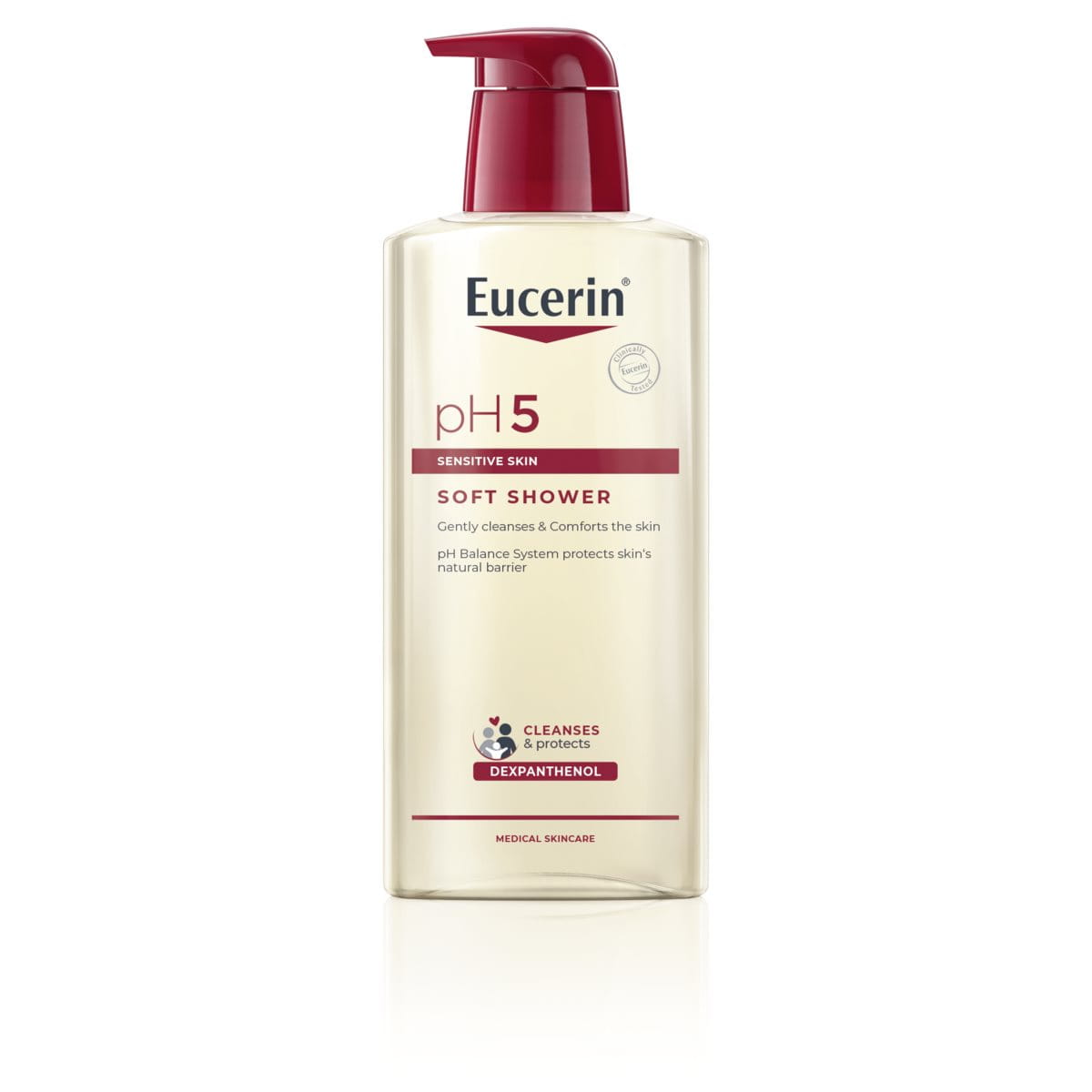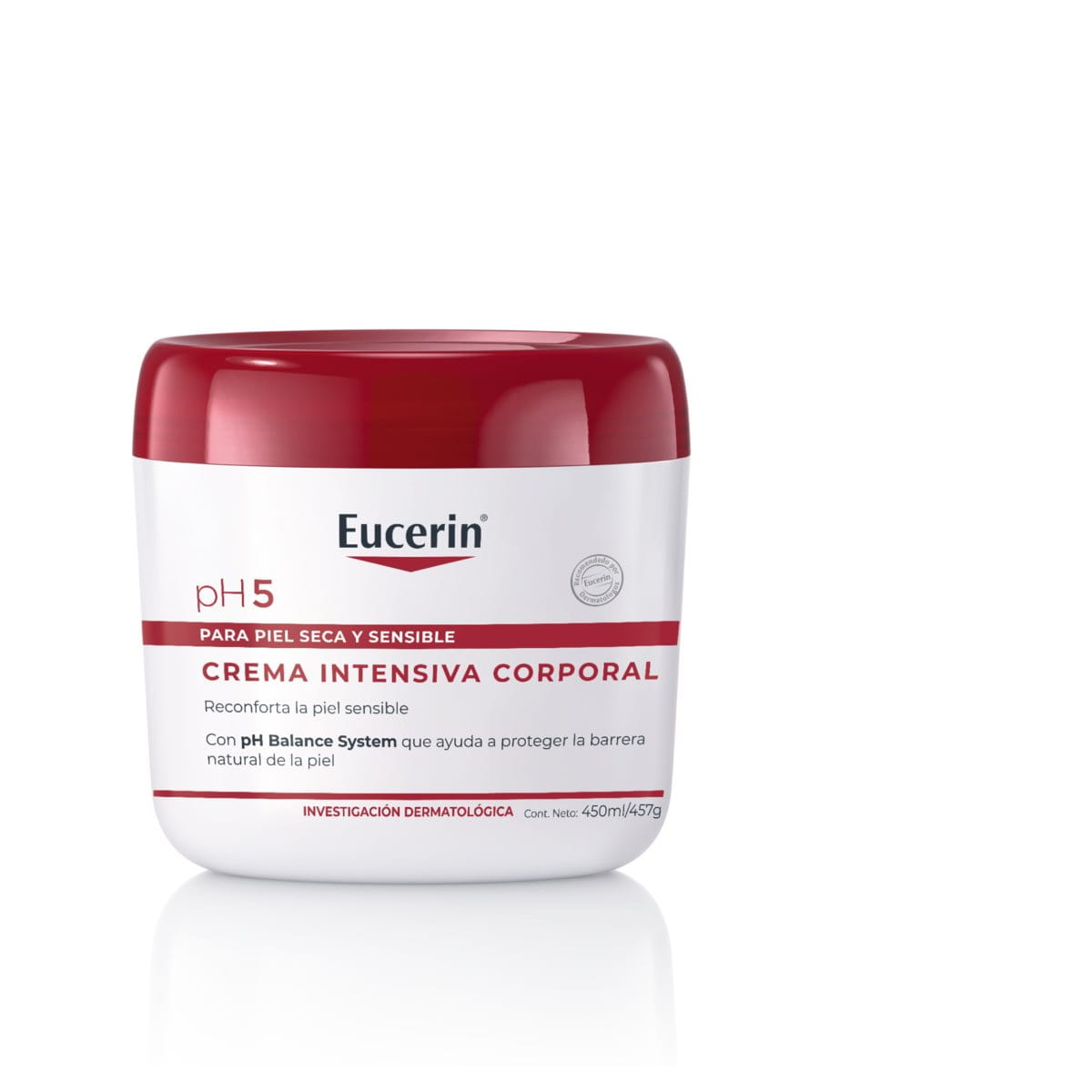We take responsibility. For your skin. And our planet.
About
Read more about our product
Main Findings
Clinical Formula
Skin’s surface is covered by a protective acid mantle which gives it a mildly acidic pH. This pH plays an important role in skin condition and is key to skin’s protective barrier. It neutralizes alkaline-based aggressors (such as harsh surfactants), supports the essential process of shedding dead skin cells (known as desquamation) and creates the optimal environment in which skin’s natural flora can thrive.
When skin’s pH alters its barrier function is compromised. Water loss increases and skin dries out making it more susceptible to external irritants and sensitivity.
The Eucerin pH Balance System contains pH5 Citrate Buffer to restore and support skin’s optimal pH. This helps to strengthen skin’s barrier function, protect its natural defences and make skin less sensitive.
What are surfactants, and which ones does Eucerin use?
Surfactants are active cleansing agents, sometimes also called active surface or active interface substances. They are organic compounds that influence molecular adhesion and reduce surface tension. When used in skin cleansers, they make it easier to remove dirt particles from skin’s surface.
Comprehensive clinical and dermatological studies prove that the extra-mild surfactants used in Eucerin cleansing products – which include Sodium Myreth Sulfate and Lauryl Glucoside – have excellent skin compatibility.
Why does skin’s pH matter and what does the Eucerin pH Balance System do?
Skin’s surface is covered by a protective acid mantle which gives it a mildly acidic pH. This pH plays an important role in skin condition and is key to skin’s protective barrier. It neutralizes alkaline-based aggressors (such as harsh surfactants), supports the essential process of shedding dead skin cells (known as desquamation), inhibits the growth of bacteria and creates the optimal environment in which skin’s natural flora can thrive.
When skin’s pH alters its barrier function is compromised. Water loss increases and skin dries out making it more susceptible to external irritants and sensitivity.
The Eucerin pH Balance System contains pH5 Citrate Buffer to restore and support skin’s optimal pH. This helps to strengthen skin’s barrier function, protect its natural defences and make skin less sensitive.
Why does skin need protection?
Our skin works hard to protect our bodies. It defends the body from external influences such as changes in climate, pollution, UV light, and chemicals. But these environmental forces can have an impact on skin and cause it to become stressed. When skin is stressed, it is less able to work as an efficient barrier. It loses moisture and becomes permeable from the outside. It’s important that we protect our skin and support the optimal pH balance for its natural barrier function. Skin is then able to carry on its important work of protecting us.
How can I be sure your products are safe for my sensitive skin?
All Eucerin pH5 cleansing products have been specially formulated to combine gentle cleansing and excellent skin protection with clinically-proven skin tolerability. Eucerin pH5 Washlotion is suitable for frequent use on skin that is prone to type 1 allergies such as Hay Fever.
Before applying a new product all over your body, test it first by applying it repeatedly to the skin on the inside of your elbow. If there’s no reaction (e.g. redness, swelling or itching) then it’s safe to assume the product is compatible with your skin. If you have any concerns we recommend that you ask a pharmacist or dermatologist for their advice.
Read also some related articles
